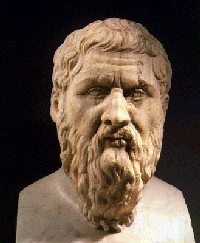
The humiliated Russian Bear stalks eastward, menacingly, licking at open wounds inflicted on its Western flank by the Ukraine (a revolution prompted by the State of the Union, funded by a rogue American financier, and, ultimately, validated by robust American diplomacy), now cutting sordid deals with the mandarins in China (And how long, dear reader, before the proud Slavic people get resentful of munching at scraps of sweetmeat tossed from the well-stocked tables of Beijing?), supplying military equipment to Iran (anti-aircraft missiles, but don't worry, it's not to deter an American intervention ... Its for UFO's, silly goose), generally running interference against American interests abroad in all manner of deviously creative ways.
But as the Central Asian republics -- already 3 in 18 months -- begin to slough off the malevolent influence of it's former colonial Master ... how will the Generals in Moscow react?
That, dear reader, is the $64,000 question. Thus far, Putin and the Kremlin have been tolerant about Kyrgystan, and Georgia and the Ukraine. But the unpredictable winds of change are blowing strongly in "The 'Stans," as they are called. Democracy -- or, at the very least, a disgust at autocracy -- is very much on the march. And George Soros' Open Foundation has vast reserves to spend to facilitate democratic change. Will the Kremlin refrain from military action? Is there a breaking point in all this for Moscow?
If so, at what point would Russia draw the proverbial line in the sand and fight, to preserve some semblance of an empire, not to lose what the Japanese call "face," and -- if they did take military action -- would the West have the will, or, more accurately, military (diplomatic?) capability to respond? Or have we simply called all our markers for a generation with Moscow. Heavy questions all.
Anyway, last night The Corsair came up with this theory after quite a bit of Grappa (The Corsair is doing his little grappa thing now, don't discourage). The fellows at the bar last night thought The Corsair a naught else but full of shit. Bear with me. The theory goes as follows: the intramural conflict within the Republican party between the Realists and the Neocons can be boiled down to a twilight struggle between Political Science (Hobbes, Machiavelli) and Political Philosophy (Plato, Aristotle). Just as Socrates introduced Philosophy to the world -- and, more specifically, Political Philosophy -- by the act of martyrization (Which presaged Christ's martyrization, for spiritual-political reasons), Niccolo Machiavelli put forth Political Science, with The Prince (A Realist would never die for any cause), codifying an already existing manner of the cool calculation of risks, with an emphasis on "stability," or political equilibrium.
It is interesting that "The Blink Presidency," as Joe Klein calls it, facilitated the rise of the Neocons. As incidents of Attention Deficit Disorder rise (Look at Gen Y and their ultraviolent video games and MTV attention spans) does that mean idealistic philosophy will have a renaissance? hardly. The Corsair believes the lowering attention span (The United States of Amnesia?) will harbor an Age of Boldness. Lots of wars. The end of the novel (once and for all) or any activity remotely as taxing. And, perhaps, the cutting of movie lengths from 2 hours to something more akin to one and a half.
Maybe it was too much Grappa.
No comments:
Post a Comment